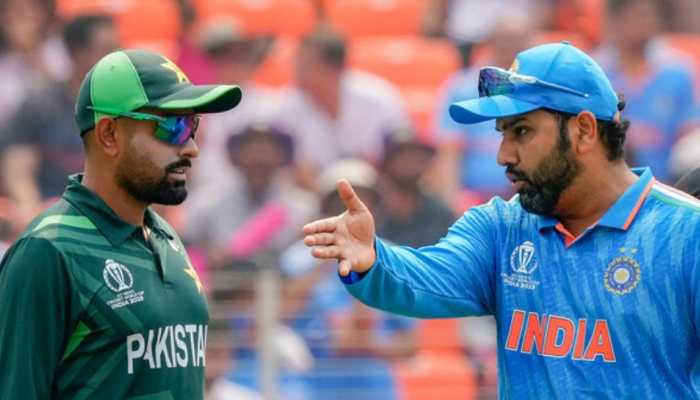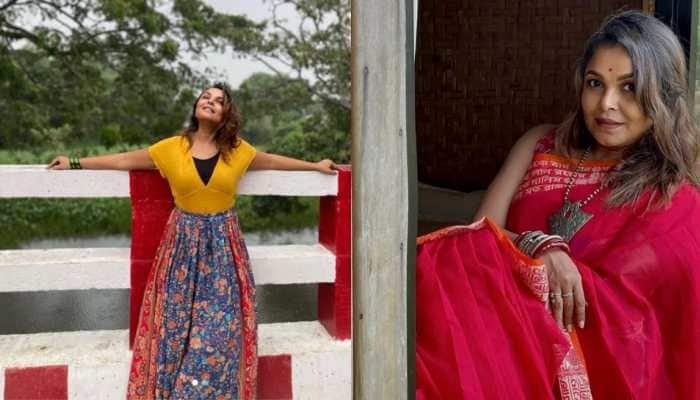Stage set for polls for 25 Rajya Sabha seats, all eyes on Uttar Pradesh
Arithmetically, the ruling BJP should easily win eight out of the 10 seats in Uttar Pradesh.
Trending Photos
) Representational image
Representational image New Delhi: The stage is set for Rajya Sabha polls on Friday for the remaining 25 seats in six states including Uttar Pradesh. The Narendra Modi-led BJP government at the Centre, currently has 58 members, four more than the Congress.
The BJP is virtually assured of eight of the ten seats amid suspense whether it can snatch an extra seat in the light of the newfound bonhomie between former arch rivals Samajwadi Party and BSP.
For the 58 Rajya Sabha seats to be filled, 33 candidates from 10 states were declared elected unopposed on March 15, 2018. Seven union ministers including Ravi Shankar Prasad and Prakash Javadekar were among them.
Besides UP where Union Finance Minister Arun Jaitley is in the fray, West Bengal, Karnataka, Jharkhand, Chhattisgarh and Telangana will also feature in the polls.
Counting of ballots will be taken up at 5 pm on Friday, an hour after the end of voting.
Uttar Pradesh:
Arithmetically, the ruling BJP can easily win eight out of the ten seats in Uttar Pradesh. The four-MLA strong Suheldev Bharatiya Samaj Party (SBSP), after being placated by BJP chief Amit Shah, and the Apna Dal (Sonelal) with nine MLAs have decided to vote for BJP nominees.
"We are standing with the BJP. We had held a meeting of our MLAs and it was decided that we will strongly support the BJP," national president of Apna Dal (S) Ashish Patel told PTI in Lucknow.
In all, there are eleven candidates in the fray for the ten seats. The BJP and its allies have 324 MLAs in the 403-member Assembly after the death of its Noorpur MLA in a road accident recently. To secure a win, a candidate needs 37 first preference votes. Arithmetically, the BJP can easily win eight of the ten seats and will be left with 28 surplus votes.
The SP and the BSP also appeared sure of win one seat each. The SP has fielded Jaya Bachchan and the BSP Bhimrao Ambedkar. With 19 MLAs, the BSP is short of 18 first preference votes and with Naresh Agarwal's son Nitin, who is still an SP MLA, likely to cross-vote for the BJP, the task will become difficult for the candidate of the Mayawati-led party. Naresh recently quit the SP and joined the BJP.
Riding on the new bonhomie with the SP, Mayawati is banking on the ten surplus votes of Akhilesh Yadav's party, besides seven votes of the Congress and one of RLD to reach the magic figure of 37 votes. However, Nitin can queer the BSPs pitch if he votes for the BJP.
The country's most populous state sends 31 MPs to the 245-member Rajya Sabha. Besides Jaitley, the others in the fray are from BJP are Ashok Bajpai, Vijay Pal Singh Tomar, Sakal Deep Rajbhar, Kanta Kardam, Anil Jain, Harnath Singh Yadav, GVL Narasimha Rao and Anil Kumar Agarwal.
Rajasthan:
The three BJP candidates in Rajasthan - Kirori Meena, Bhupender Yadav and Madan Lal Saini - were on March 15, 2018, elected unopposed as no other contestant had filed their nomination.
Meena had separated from the BJP in 2008 and had rejoined the party recently with his two National Peoples Party (NPP) MLAs. He, as the state president of the NPP, which he had joined in 2013, also merged his party with the BJP.
Opposition Congress had announced that it would not field candidates for the biennial Rajya Sabha polls and no other candidates filed nomination for the election.
The tenure of Yadav and two Congress MPs Abhishek Manu Singhvi and Narendra Budania ends on April 3.
Gujarat:
In Gujarat, four candidates - two each of the Congress and the BJP - have also been elected unopposed to the Rajya Sabha. Union ministers Purshottam Rupala and Mansukh Mandavia (BJP) and Naran Rathwa and Amee Yajnik (Congress) were declared elected unopposed by the election authorities after BJP's Kiritsinh Rana and Congress-backed Independent PK Valera backed off on the last day of withdrawal of nominations.
Maharashtra:
On the other hand, BJP's nominee for the Rajya Sabha polls in Maharashtra has withdrawn, clearing the way for the other six candidates, including Union Minister Prakash Javadekar, to be elected to the Upper House unopposed.
"Maharashtra State Commission for Women chairperson Vijaya Rahatkar has withdrawn from the fray," the state's Parliamentary Affairs Minister Girish Bapat had said on March 15, 2018.
With the BJP nominee withdrawing her papers, the election of the remaining six candidates is a mere formality now. For the six seats falling vacant, there are four candidates from BJP and one each from Congress, National Congress Party (NCP) and Shiv Sena.
"The BJP nominees include Javadekar, former Maharashtra chief minister Narayan Rane and former Kerala BJP president V Muraleedharan," Bapat had said. The list of candidates from other parties includes senior journalist Kumar Ketkar (Congress), Anil Desai (Shiv Sena) and Vandana Chavan (NCP).
Rane quit the Shiv Sena in 2005 and later joined the Congress. He ended his over a decade-long association with the party in September 2017, formed the Maharashtra Swabhiman Paksh and allied with the BJP-led NDA.
At present, the Opposition Congress and the NCP hold two seats each, while the Shiv Sena and the BJP have one seat each of these six seats. The BJP, with its tally of 122 in the Assembly, is poised to get three seats now, while the Sena, the Congress and the NCP will get one each.
Odisha:
All the three candidates of Odisha's ruling Biju Janata Dal (BJD) - Prashant Nanda, Soumya Ranjan Patnaik and Achyuta Samanta - were declared elected to the Rajya Sabha unopposed on March 15, 2018.
They will fill the seats in the Upper House of three members - AU Singh Deo, Dillip Tirkey and BJD supported Independent member AV Swami, whose term is scheduled to end on April 2, 2018.
Haryana, Andhra, Himachal, Madhya Pradesh:
Lt Gen (retired) DP Vats of BJP has already been elected unopposed from Haryana.
Ruling TDP's CM Ramesh, Kanakamedala Ravindra Kumar and YSRC's Vemireddy Prabhakar Reddy was also elected unopposed to the three seats of Andhra Pradesh on March 15, 2018.
In Madhya Pradesh, apart from union ministers Dharmendra Pradhan and Thawar Chand Gehlot, Ajay Pratap Singh and Kailash Soni of BJP and Rajmani Patel of Congress have too won without a contest.
Health Minister JP Nadda has been elected unopposed from Himachal Pradesh.
West Bengal, Karnataka, Jharkhand, Chhattisgarh, Telangana, Kerala:
Altogether six candidates, including Congress nominee Abhishek Manu Singhvi, are in the fray for the five Rajya Sabha seats from West Bengal. The state's ruling TMC has decided to back the eminent lawyer.
Five candidates are in the electoral arena in Karnataka for four seats. The state's ruling Congress has fielded three nominees, while there are one each of the BJP and JD(S).
Elections will also be held for two seats in Jharkhand where three candidates are in the fray, including two of the state's ruling BJP and one of the Congress.
One candidate each of the ruling BJP and main Opposition Congress will cross swords for the lone Rajya Sabha seat from Chhattisgarh.
Four candidates will try their luck from Telangana where polling will be held for three seats.
A bypoll will also be held for one seat in Kerala where Veerendra Kumar, the Left-backed candidate of Sharad Yadav faction of the JD(U), is pitted against Babu Prasad of the Congress.
(With PTI inputs)
Stay informed on all the latest news, real-time breaking news updates, and follow all the important headlines in india news and world News on Zee News.
Live Tv







)
)
)
)
)
)
)
)
)
)
